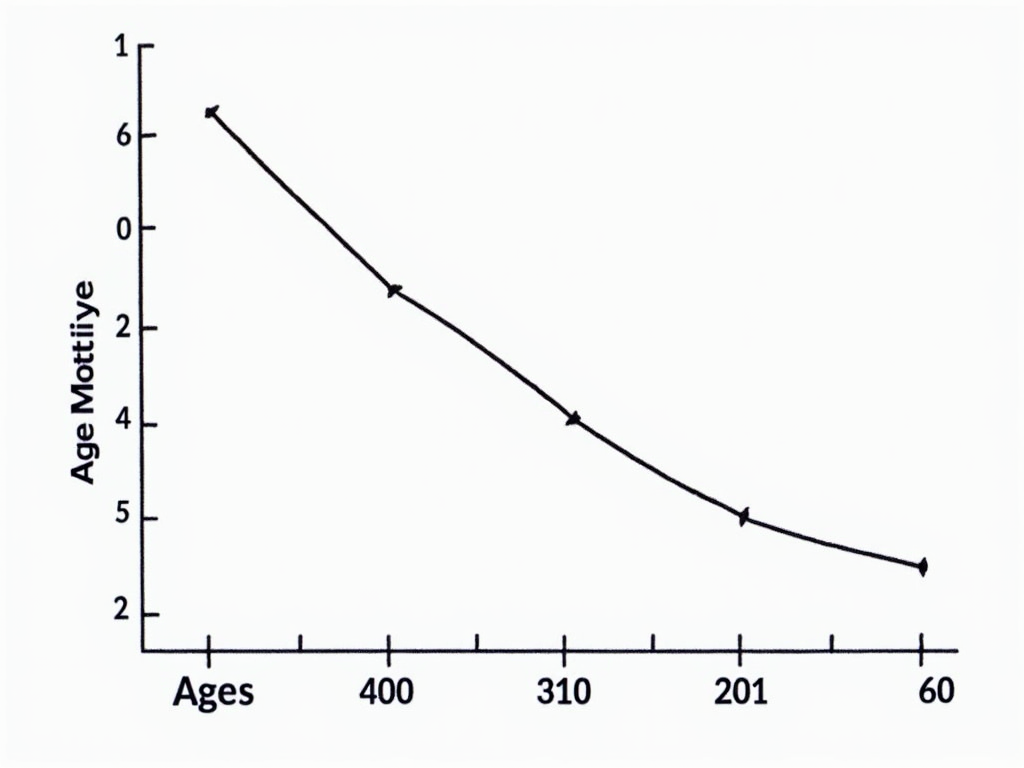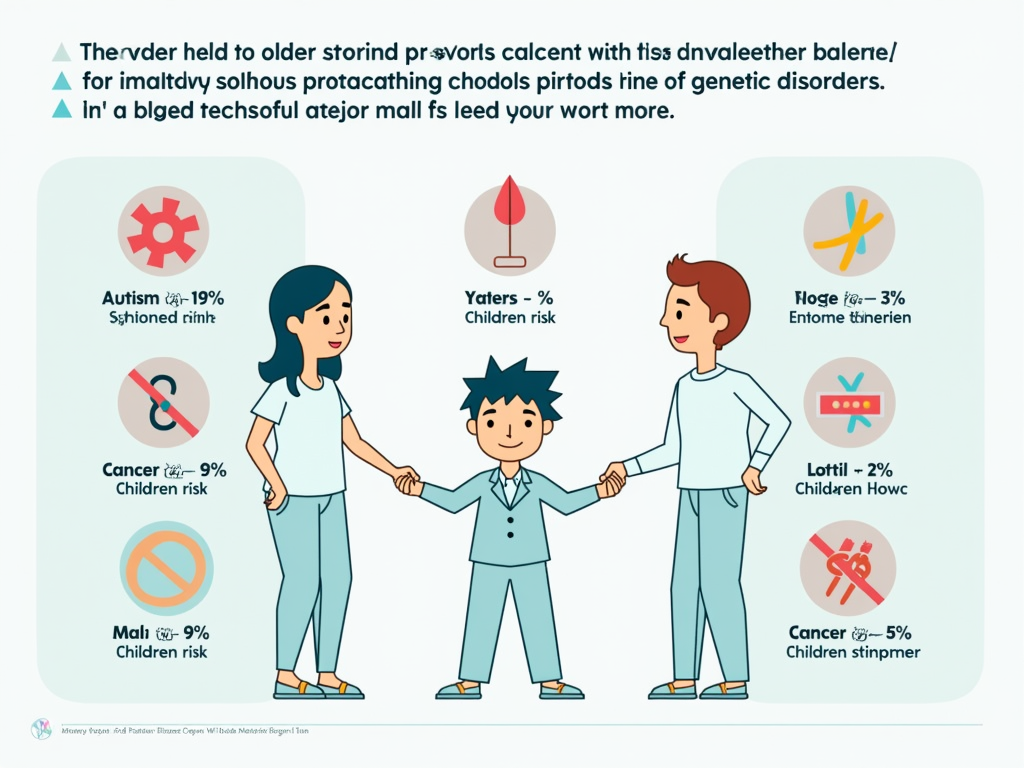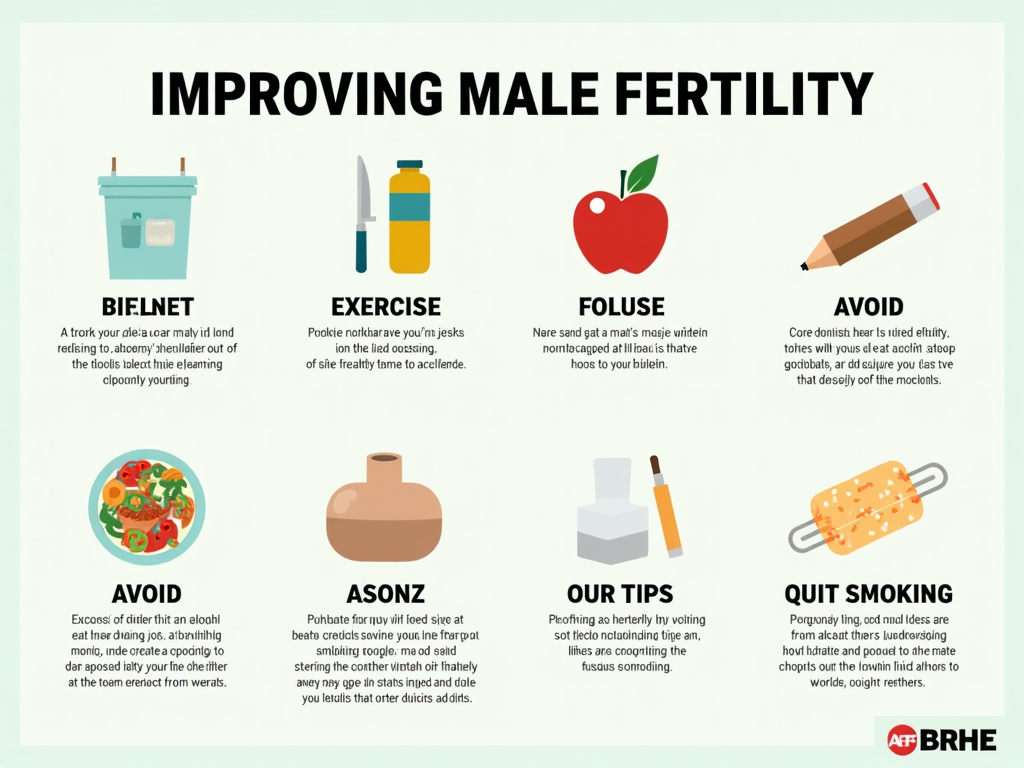How Age Affects Male Fertility: What Science Says
March 30, 2025, 1:48 p.m.
As men age, many wonder how their fertility might be affected. While much attention is given to female fertility and age, male fertility also changes over time. This article delves into the science behind how age impacts male fertility, offering insights into sperm quality, fertility rates, and potential genetic risks for offspring. We'll also explore assisted reproductive technologies and provide guidance on managing male infertility in your 50s. Whether you're planning a family or simply curious, understanding these factors can help you make informed decisions.
The Science of Male Fertility and Age
Male fertility is a complex topic, influenced by various factors including age. Unlike women, who have a finite number of eggs, men continue to produce sperm throughout their lives. However, the quality and quantity of sperm can change as men get older. Let's examine what science says about these changes.
How Sperm Quality Changes with Age
Research indicates that sperm quality tends to decline with age. A study published in the journal Human Reproduction found that men over 40 had lower sperm motility (the ability of sperm to swim effectively) compared to younger men. Additionally, older men may experience a decrease in sperm count and an increase in sperm with abnormal shapes. These changes can make it more challenging for sperm to fertilize an egg.

Impact on Fertility Rates
The decline in sperm quality can affect fertility rates. A study in the Journal of Urology reported that men over 35 took longer to conceive compared to younger men. Furthermore, the likelihood of miscarriage increases when the male partner is older. This is partly due to genetic mutations in sperm that become more common with age. These mutations can affect the health of the embryo, leading to higher miscarriage rates.
Genetic Risks for Offspring
Age-related changes in sperm can also pose genetic risks for offspring. Older fathers have a higher chance of passing on genetic disorders such as autism, schizophrenia, and certain types of cancer. A study in Nature found that the number of de novo mutations (new mutations not present in the parents' genes) in sperm increases with age. These mutations can lead to developmental issues in children.

Assisted Reproductive Technologies: What You Need to Know
For men facing fertility challenges due to age, assisted reproductive technologies (ART) can offer hope. ART encompasses various medical procedures designed to help couples conceive. Here’s what you need to know about these technologies.
What Are Assisted Reproductive Technologies?
ART includes techniques such as in vitro fertilization (IVF), intracytoplasmic sperm injection (ICSI), and sperm donation. IVF involves fertilizing an egg with sperm in a laboratory and then implanting the embryo into the uterus. ICSI is a specialized form of IVF where a single sperm is injected directly into an egg. Sperm donation allows couples to use sperm from a younger, healthier donor.
How ART Can Help Older Men
For older men, ART can bypass some of the issues related to sperm quality. For example, ICSI can be particularly effective when sperm motility is low. Additionally, preimplantation genetic testing (PGT) can screen embryos for genetic abnormalities before implantation, reducing the risk of genetic disorders.

Managing Male Infertility in Your 50s: What to Know
If you're in your 50s and concerned about fertility, there are steps you can take to manage and potentially improve your situation. Here’s what you need to know.
Lifestyle Changes
Adopting a healthy lifestyle can positively impact fertility. Consider the following changes:
-
Diet: Eat a balanced diet rich in antioxidants, vitamins, and minerals. Foods like fruits, vegetables, nuts, and whole grains can support sperm health.
-
Exercise: Regular physical activity can improve overall health and potentially boost fertility. Aim for at least 30 minutes of moderate exercise most days.
-
Avoid Toxins: Limit exposure to environmental toxins, such as pesticides and heavy metals, which can harm sperm quality.
-
Quit Smoking and Limit Alcohol: Smoking and excessive alcohol consumption can negatively affect sperm quality. Quitting smoking and moderating alcohol intake can help.

Medical Interventions
Consulting with a fertility specialist can provide personalized guidance. Medical interventions may include:
-
Hormone Therapy: If hormonal imbalances are affecting fertility, hormone therapy might be recommended.
-
Surgery: In cases where physical blockages or varicocele (enlarged veins in the scrotum) are present, surgery can help.
-
ART: As discussed earlier, assisted reproductive technologies can be a viable option for older men.
Ejaculatory Dysfunction in Older Adults
Ejaculatory dysfunction is a common issue among older men and can impact fertility. Understanding its causes and treatments is crucial.
Causes of Ejaculatory Dysfunction
Ejaculatory dysfunction can be caused by various factors, including:
-
Neurological Issues: Conditions like diabetes or multiple sclerosis can affect the nerves involved in ejaculation.
-
Medications: Certain medications, such as antidepressants or blood pressure drugs, can interfere with ejaculation.
-
Prostate Problems: Enlarged prostate or prostate surgery can lead to ejaculatory issues.
-
Psychological Factors: Stress, anxiety, or depression can also play a role.
Treatments for Ejaculatory Dysfunction
Treatment options depend on the underlying cause and may include:
-
Medication Adjustments: If medications are causing the issue, your doctor might adjust your prescription.
-
Therapy: Psychological counseling or sex therapy can help address psychological factors.
-
Medical Devices: Devices like vacuum pumps or penile implants can assist with ejaculation.
-
Surgery: In some cases, surgical intervention might be necessary to correct physical issues.

Summary
Understanding how age affects male fertility is essential for men planning to start or expand their families. Science shows that sperm quality declines with age, impacting fertility rates and increasing genetic risks for offspring. However, assisted reproductive technologies offer hope, and lifestyle changes can help manage infertility in older men. Additionally, addressing ejaculatory dysfunction is crucial for maintaining fertility. By staying informed and proactive, men can navigate these challenges effectively.